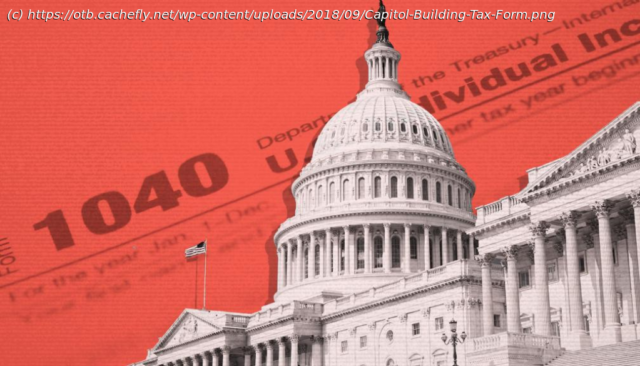Will wonders never cease?
Roll Call (“Tax bill overcomes objections from left and right, passes House“):
The House on Wednesday night passed a $79 billion family and business tax break bill after several days of uncertainty, teeing it up for consideration in the Senate.
The package negotiated by House Ways and Means Chairman Jason Smith, R-Mo., and Senate Finance Chair Ron Wyden, D-Ore., easily mustered the two-thirds majority needed to pass, despite GOP drama earlier in the week and previous criticism from Democrats.
[…]
The bill would devote about $33 billion to reviving a trio of business tax breaks and roughly the same amount to expand the child tax credit, with the most significant gains going to low-income families with more than one kid. The legislation would also boost the low-income housing tax credit, end double taxation of U.S. companies operating in Taiwan and provide tax relief to victims of natural disasters.
The cost would be offset by ending the processing of employee retention credit claims early. The pandemic-era tax break has been rife with fraud, prompting the IRS to pause processing claims last year to sort through $2.8 billion worth of potentially fraudulent claims.
In a statement after the House vote, Wyden said he’d work with Senate Majority Leader Charles E. Schumer, D-N.Y., and other senators “to get this done as soon as possible.”
Republicans voted for the bill by a margin of 169-47, despite criticism from the party’s right flank about its expansion of the child tax credit. Rep. Matt Gaetz, R-Fla., dismissed the partially refundable child tax credit and business breaks as a form of welfare.
“This is not a tax bill,” Gaetz said. “It is a welfare bill in drag.”
Ways and Means member Rep. Greg Murphy, R-N.C., who supported the bill, said he shared concerns raised by some Senate Republicans that allowing families to use the previous year’s income to qualify for the child tax credit would weaken its work requirements.






